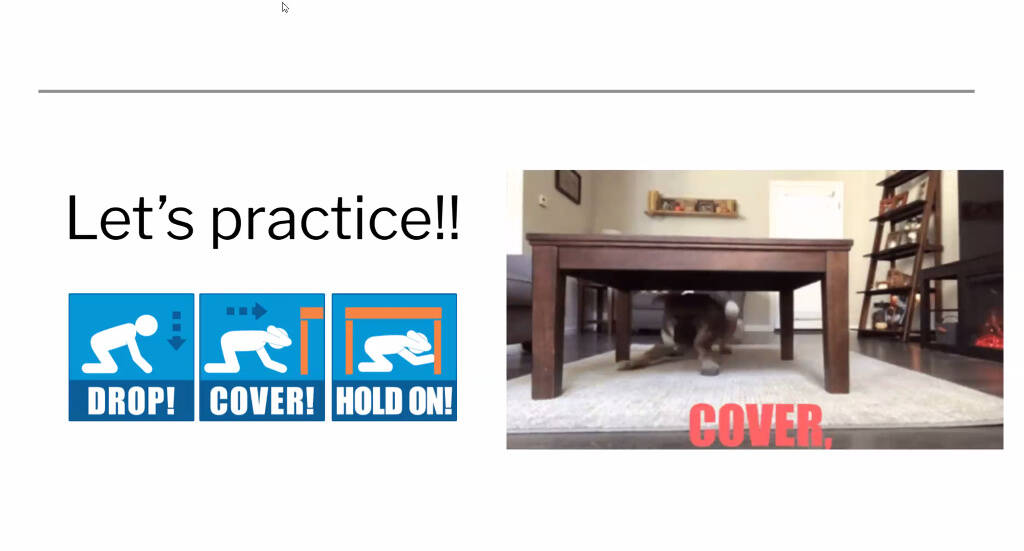Mercer Island police officer and emergency manager Jennifer Franklin has said that communication is crucial in the realm of emergency preparedness.
Emergency preparedness managers from FEMA Region 10, the American Red Cross and the Washington Military Department echoed that sentiment as they marked the National Preparedness Month of September with a Virtual Family Prep Night on Sept. 14.
FEMA’s Ilyssa Plumer led the event by using a story of a fictitious family experiencing an earthquake at home.
“I remember going through several earthquakes growing up here. We are in earthquake territory in the Pacific Northwest. There’s lots of faultlines around, but that’s not to scare you, it’s just important to know what to do,” said Plumer, whose organization represents Washington, Oregon, Idaho and Alaska.
Kiana Kabanje of the Washington Military Department jumped into the conversation as the earthquake began and noted that the safest thing for people to do is drop to the ground under a sturdy desk, table or other object, cover themselves — holding their neck and head — and hold on. Do not run, she said, because it’s not a safe move.
“Practicing for an earthquake is so important. That way when one happens, your brain and your body know exactly what to do,” she said. “You want to stay in your drop, cover, hold on position until the shaking stops.”
After things have calmed, people should check themselves and their family members for injuries and make sure they’re still in a safe spot in case there’s an aftershock. Be on the lookout for broken glass or objects, wear shoes and protect your hands from breakables.
Next up, Ian Dyar of the Red Cross led a discussion about smoke alarms and noted that they usually last about 10 years.
“It’s really important to make sure that we test our alarms. We want to test our alarms monthly, making sure that the batteries are working, and we never ever disable these smoke alarms,” he said.
Mapping out a fire escape plan is vital, said Plumer, adding that people should know where to exit each room — from a door or window — and how to do so safely, especially from upstairs.
FEMA’s Tanya Toribio handled the emergency kit portion of the presentation, noting that kits should include food, water, a flashlight, a first aid kit, a radio, money, a comfort item like a blanket or deck of cards and more.
ISLAND PREPAREDNESS
At the Aug. 31 Mercer Island City Council meeting, Mayor Benson Wong approved a proclamation marking September as Emergency Preparedness Month on the Island. Residents are encouraged to make a plan, build a kit, host a preparedness meeting for neighborhoods and businesses and talk with children about disaster preparedness.
Recently, the city has been posting emergency preparedness tips from FEMA on its social media and Franklin was set to release her quarterly newsletter. Map Your Neighborhood and block watch meetings are currently being held virtually, and Franklin hopes to offer the CERT (Community Emergency Response Team) program in person soon.
In place of a volunteer appreciation event scheduled for Sept. 6, which was postponed due to the resurgence of COVID, Franklin and her team will send its volunteers — who have amassed copious hours — Oh! Chocolate store certificates.
“We continue to persevere here on the Island, working together as a city and with our experts and partners across the region to keep things on the right path forward,” Franklin said. “Even amidst the pandemic, I’m glad we can offer emergency preparedness programs to the community and give an especially big thanks to our many volunteers who help keep us ready for anything.”
For Island emergency preparedness information, visit https://www.mercerisland.gov/emergency-management


